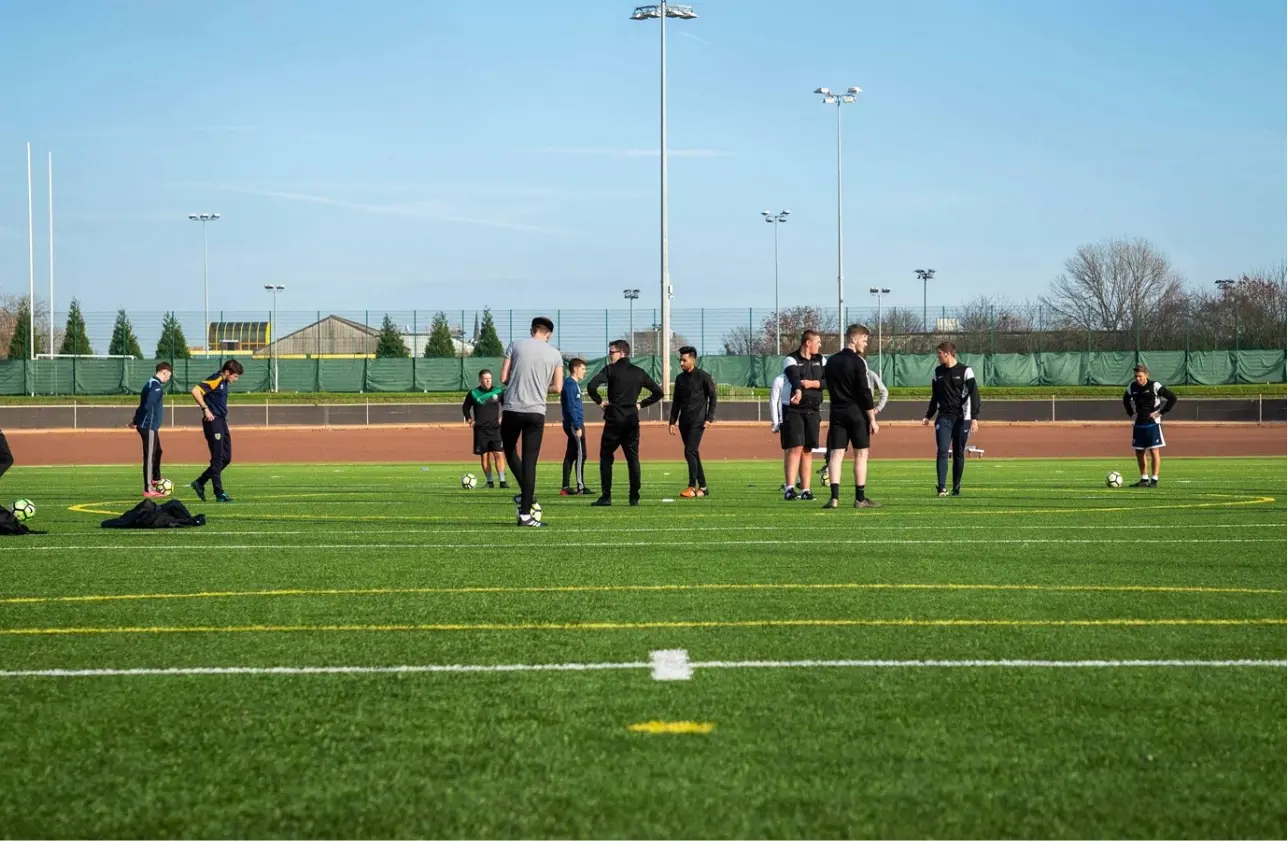Grassroots Football: Participation, Impact, and Employability Benefits

As of 2024, 15.7 million people play football in England.
Of course, a very select few do so in a professional environment. The rest take part in grassroots setups.
This is simply football played in a non-professional environment, including your local Sunday League side, and while the professional scene receives most of the attention, some top players have come from grassroots clubs.
Ezri Konsa, Jermain Defoe and John Terry are notable examples, all coming from the East London Sunday League side, Senrab FC, highlighting the importance of grassroots football in giving young players a platform to get noticed.
But beyond the production of professional players, grassroots football has numerous community, health, and employment benefits, and some of these will be explored in this article.
The Scale and Importance of Grassroots Football
According to James Kendall, FA Director of Football Development speaking in the FA Grassroots Strategy for 2024-2028, there are currently up to 125,000 teams across all levels of English football, with that figure expected to grow to around 140,000 by 2028.
In the same report, it is estimated that this results in a £15.9 billion contribution to society, including £11.8 billion in direct economic value, £3.2 billion in healthcare savings, and £935 million in social value (stemming from improved educational performance among children.)
Within this, there are said to be 200,000 fewer child cases of obesity and 60,000 fewer cases of depression and anxiety, with grassroots football playing a large role. In fact, 92% of participants say that football makes them feel happier, and 86% say it improves their confidence.
For adults, grassroots participation is reported to have reduced cases of physical and mental health conditions by 259,000.
Grassroots football also plays a significant role in making football more open to everyone, including women, with there now being more female players on the FA’s records than ever at 4.4 million.
Grassroots’ Impact on Career Opportunities and Employability
In England, over 1 million people work or volunteer in grassroots football. This ranges from administrative roles to refereeing, and these are the people who keep the game running for the millions that play.
Coaching is another key role, with the same FA Grassroots Strategy report saying there are 160,000 coaches in the UK grassroots system.
One example is Connor Cox, a Youth Development Phase Coach at the Russell Martin Foundation in Brighton.
Speaking to GIS earlier this year, Connor told us about the holistic approach of grassroots coaching, saying:
“Understandably, not every child will be able to make it to academies, but it’s about facilitating them and giving them the best opportunity to. Everyone’s rate of development is different.”
“My job as a coach is to push them to improve on and off the pitch as much as possible.”
Overall, the aim of the Russell Martin Foundation is for players to “be themselves all the time,” as Russell Martin told The i Paper, “because authenticity is robbed from a very young age, in schools, and in coaching. It’s the hardest thing in the world to be yourself.”
There are also attributes that children gain from grassroots football that can go on to improve their employability.
People skills are a significant example. The FA says that 78% of children who play football regularly think it improves their communication.
The impact of this is felt by those in the sports industry. One example is World Cup player Bailey Wright, who told GIS that football taught him the importance of “working with people, in teams, in high-pressure decision making, and understanding what kind of leader you want to be.”
Dr Matthew Andrew, a Senior Lecturer in Sport and Exercise Psychology, spoke similarly about the value of communication in the workplace.
“How do you deliver your message?”
“Your knowledge needs to be there, but you need to be able to communicate effectively.”
For those passionate about growing grassroots football, the game offers rewarding career opportunities. To understand more about football as a whole and to develop expert-led knowledge, discover our range of programmes at GIS.
Article by Zakaria Anani
You may also be interested in

Guest Speakers
December 12, 2024 |
Olympic Medallist Asha Philip Joins GIS to Pursue Master’s in International Sport Management
Read Post

Alumni
December 12, 2024 |
Former Canadian international footballer takes on MSc Sports Directorship course
Read Post

Latest news
July 7, 2025 |
The Premier League’s Financial Rules: PSR and Financial Fair Play Explained
Read Post
Our Partners













